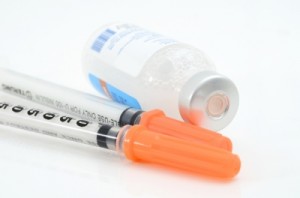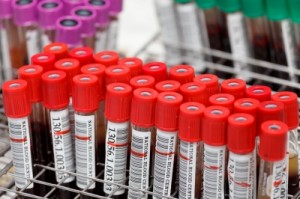Vitamin B12 and folic acid are both essential water-soluble B vitamins that your body needs to prevent anemia, provide energy and support the nervous system. For maximum benefits, it’s important to maintain a healthy balance of vitamin B12 and folic acid.
Vitamin B12 and folic acid anemia
Vitamin B12 and folic acid work together to regulate production of healthy red blood cells needed to spread oxygen throughout your body. When vitamin B12 and folic acid levels fall, you may notice symptoms of anemia indicating a need for more oxygen and B vitamins.
Symptoms of vitamin B12 deficiency and low folic acid include:
- Constant fatigue
- Depression
- Anxiety
- Memory loss
- Dizziness
- Confusion
- Painful numbness and tingling in the extremities
- Muscle spasms
- Vision problems
Isolated vitamin B12 deficiency
It’s important not to overdo it with folic acid supplements.
- If you were to develop a vitamin B12 deficiency (pernicious anemia), then it may not appear on a blood test when folic acid levels are high, as red blood cell production will appear normal.
- Nerve damage from vitamin B12 deficiency can continue, even with normal levels of folic acid.
- There is a belief among scientists that overconsumption of folic acid may worsen attention and memory disorders that occur with vitamin B12 deficiency.
- Long term, pernicious anemia can result in severe handicaps caused by irreversible nerve damage.
If you are at risk for vitamin B12 deficiency, then it’s important to have your B12 levels and folic acid levels checked regularly.
Vitamin B12 Deficiency- How Long does it Take?
Risk factors for pernicious anemia are:
- Family history for pernicious anemia
- Autoimmune disorders
- Old age
- Vegan dieting
- Gastritis
- Bariatric surgery
- Ilium removal
- Medications for acid reflux or diabetes
Treatment
The only way to treat vitamin B12 and folic acid deficiency is to replenish your levels of these important B vitamins until your achieve a normal amount. You may be required to continue taking vitamin B12 and folic acid supplements in order to prevent developing anemia again.
In addition to taking vitamin B12 and folic acid supplements, try to include more foods containing B vitamins in your diet, such as beef, fish, poultry, milk, eggs, and grain products fortified with folic acid.
Your turn!
Do you have any questions or suggestions? Please leave your comments below.
Share with your friends!
If you found this article helpful, then please share with your friends, family, and coworkers by email, twitter, or Facebook.
Like this? Read more:
Why do Diabetics get Vitamin B12 Deficiency?
I Eat Healthy…So How did I Get Vitamin B12 Deficiency?
Sources:
Dietary Supplement Fact Sheet: Vitamin B12- Health Professional Fact Sheet
Anaemia, vitamin B12 or folate deficiency
Three of the B Vitamins: Folate, Vitamin B6, and Vitamin B12
Image courtesy of badmanproduction/freedigitalphotos









